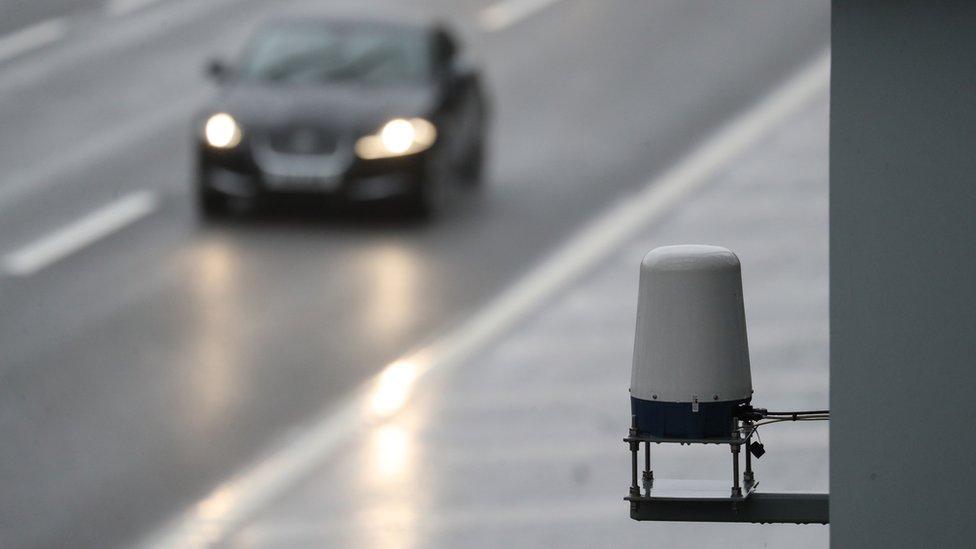Smart motorways: 'No manslaughter charge' over M1 death
- Published

Nargis Begum died after the car she was travelling in with her husband Mohammed Bashir broke down on a smart motorway
National Highways will not face a corporate manslaughter charge over the death of a woman on a smart motorway, a police force has confirmed.
Nargis Begum, 62, from Sheffield, was killed after her car broke down on part of the M1 with no hard shoulder.
South Yorkshire Police carried out a "scoping exercise" for possible charges after concerns about the section of road were raised by a coroner.
The force confirmed the investigation into the offence had now ended.
South Yorkshire's Temporary Assistant Chief Constable Sarah Poolman said: "Having considered the Crown Prosecution Service (CPS) advice, we have concluded that in the circumstances, Highways England [now known as National Highways] cannot be held liable for the offence of corporate manslaughter.
"This is because, in legal terms, the organisation did not owe road users a 'relevant duty of care' under the terms set out in the Corporate Manslaughter and Corporate Homicide Act 2007.
"For this reason, I have brought the police investigation into this offence to an end."
Previous hearings into Ms Begum's death in 2018 heard that 16 minutes elapsed between her Nissan car breaking down near Woodall Services and another vehicle striking it, with a further six minutes before warning signs on the motorway were activated.
At a pre-inquest review, South Yorkshire coroner Nicola Mundy highlighted the time the breakdown went undetected and suggested the government-owned company should be referred to the CPS to consider if manslaughter charges were appropriate.

Alexandru Murgeanu (l) and Jason Mercer were killed in a crash on a different stretch of the M1 in South Yorkshire
A month before the review into Mrs Begum's death, a different coroner concluded that smart motorways "present an ongoing risk of future deaths".
Sheffield coroner David Urpeth gave the warning at an inquest into the deaths of two men who were killed on a different stretch of the M1 that had no hard shoulder in June 2019.
He said the primary cause of death of Jason Mercer, 44, and Alexandru Murgeanu, 22, was the careless driving of lorry driver Prezemyslaw Szuba, who ploughed into their vehicles as they stood stationary in lane one following a minor shunt.
Recording a conclusion of unlawful killing, Mr Urpeth said: "I find, as a finding of fact, it is clear a lack of hard shoulder contributed to this tragedy."
Mr Mercer's wife, Claire, who has campaigned for National Highways to be investigated over the crash, said the news that it would not face corporate manslaughter charges was "very upsetting".
She said: "I don't understand how they can say [National Highways] don't have a duty of care to motorists. How do you justify that?
"They build the roads, they supply the roads."
Smart motorways, which use technology to maintain the flow of traffic and give information on overhead displays, have existed in England since 2002.
The all-lane-running version - which involves opening the hard shoulder permanently to drivers - began in 2014.
Last month, the government announced it was halting the expansion of smart motorways amid safety concerns.
Schemes to convert other motorways were being paused until five years' worth of safety data from those already built was available, the government said.

Follow BBC Yorkshire on Facebook, external, Twitter, external and Instagram, external. Send your story ideas to yorkslincs.news@bbc.co.uk, external.
Related topics
- Published11 February 2021

- Published18 January 2021

- Published22 December 2020

- Published4 February 2021
